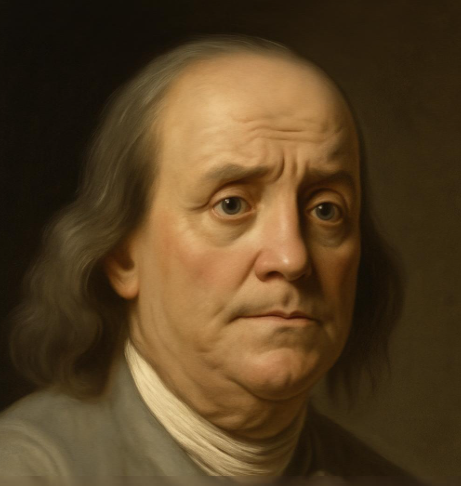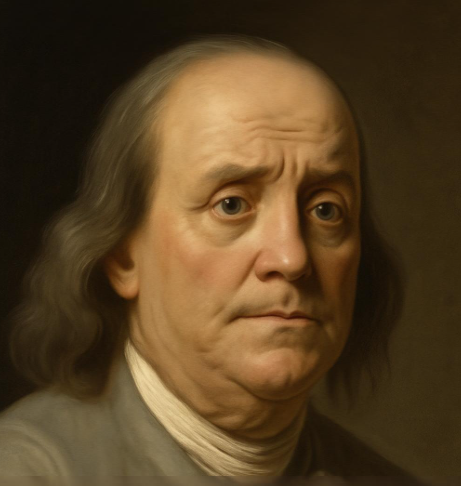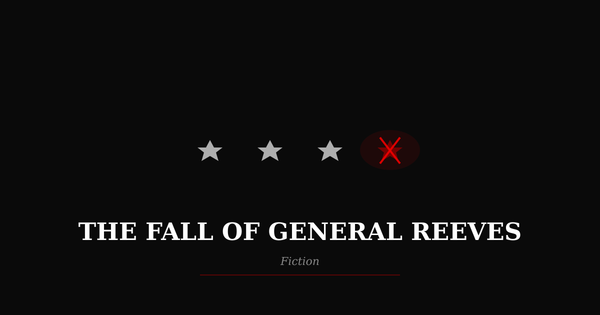Donnie Vito Corleone
with pardon power

A Republic If You Can Keep It: Franklin’s Warning Meets Trump’s Pardons
Benjamin Franklin’s famous warning, “A republic, if you can keep it,” serves as a timeless reminder of the fragility of democracy. It underscores the need for active citizenship, ethical leadership, and a commitment to justice. However, the actions of former President Donald Trump, particularly his use of the presidential pardon, reveal how easily these principles can be undermined when power is wielded without accountability. Trump’s approach to clemency transformed a constitutional tool of justice into a mechanism of loyalty, leverage, and political theater—redefining the presidency in ways that challenge the very foundations of a republic.

The Presidential Pardon: A Tool of Justice or a Weapon of Power?
The Founders intended the presidential pardon to serve as a tool for justice, offering redemption and correcting wrongs. However, Trump’s use of this power during both his first and second terms deviated sharply from this ideal. Traditionally, pardons are granted to individuals who demonstrate remorse, rehabilitation, and a commitment to reform. Yet, Trump’s clemency decisions often bypassed these considerations, favoring political allies, wealthy donors, and those who demonstrated unwavering loyalty to him.
For example, in his second term, Trump pardoned individuals convicted of fraud, bribery, and other serious crimes, including Virginia Sheriff Scott Jenkins, who accepted over $75,000 in bribes in a “cash-for-badges” scheme.
These pardons were not about justice but about consolidating power and rewarding loyalty. As Liz Oyer, a former DOJ pardon attorney, noted, Trump’s approach created a “two-tier system of justice,” where political connections and wealth determined outcomes, leaving ordinary Americans without recourse.
Loyalty as Currency: The Mafia-Like Nature of Trump’s Pardons
Trump’s use of pardons mirrored the tactics of a Mafia don, where loyalty was the ultimate currency. Those who protected him, lied for him, or refused to cooperate with investigations were rewarded. Michael Flynn, Roger Stone, and Paul Manafort are prime examples—individuals who remained loyal to Trump and were subsequently granted clemency.
This practice sent a clear message: loyalty to the “boss” would be rewarded, while dissent or cooperation with authorities would be punished.
This dynamic extended beyond individuals to entire groups. In a sweeping act of clemency, Trump pardoned those convicted for their roles in the January 6 Capitol riot, including individuals who engaged in violence.
This move not only reinforced loyalty among his supporters but also signaled that political allegiance could override the rule of law.
The Favor Economy: Pardons as Transactions
In Trump’s hands, the pardon became less about mercy and more about transactions. Wealthy individuals seeking clemency often found themselves attending high-priced fundraisers or making significant donations to Trump’s political causes. For instance, Paul Walczak, a Florida businessman convicted of tax evasion, received a pardon shortly after his mother attended a $1 million-per-plate fundraising dinner at Mar-a-Lago.
This quid pro quo approach turned the pardon process into a favor economy, where influence and money dictated outcomes.
Omertà Over Law: Silence as Survival
Trump’s clemency strategy also embraced a code of silence reminiscent of the Mafia’s omertà. By dangling the promise of pardons, Trump discouraged cooperation with authorities and ensured loyalty among his inner circle. This tactic was evident in his preemptive signals to potential witnesses, suggesting that staying loyal would result in protection.
Those who broke ranks, like Michael Cohen, were left unpardoned, serving as warnings to others.
The Theater of Power: Pardons as Spectacle
Unlike previous presidents who followed established procedures and consulted the Department of Justice, Trump treated pardons as a spectacle. He announced them with fanfare, using them to flex his power and dominate the narrative. This approach stripped the pardon of its moral weight, reducing it to a tool of political theater
Franklin’s Warning in the Age of Trump
Franklin’s warning, “A republic, if you can keep it,” resonates deeply in the context of Trump’s presidency. The transformation of the pardon power into a loyalty test and a tool of political leverage highlights the fragility of democratic institutions. When the presidency ceases to function as a democratic institution and becomes a family enterprise, the principles of justice, equality, and accountability are at risk.
Trump’s actions serve as a stark reminder that the preservation of a republic requires constant vigilance. It demands leaders who prioritize the public good over personal gain and citizens who hold those leaders accountable. Without these safeguards, the republic Franklin envisioned risks devolving into a system where power is concentrated in the hands of a few, and justice is reserved for the well-connected.
Conclusion: A Republic in Peril
Trump’s use of the pardon power exemplifies how democratic tools can be weaponized to serve personal and political interests. It underscores the importance of ethical leadership and active citizenship in preserving the integrity of a republic. Franklin’s warning is more relevant than ever: the survival of democracy depends on the collective commitment of its citizens to uphold its principles, challenge abuses of power, and demand accountability. Without this vigilance, the republic may not endure.




